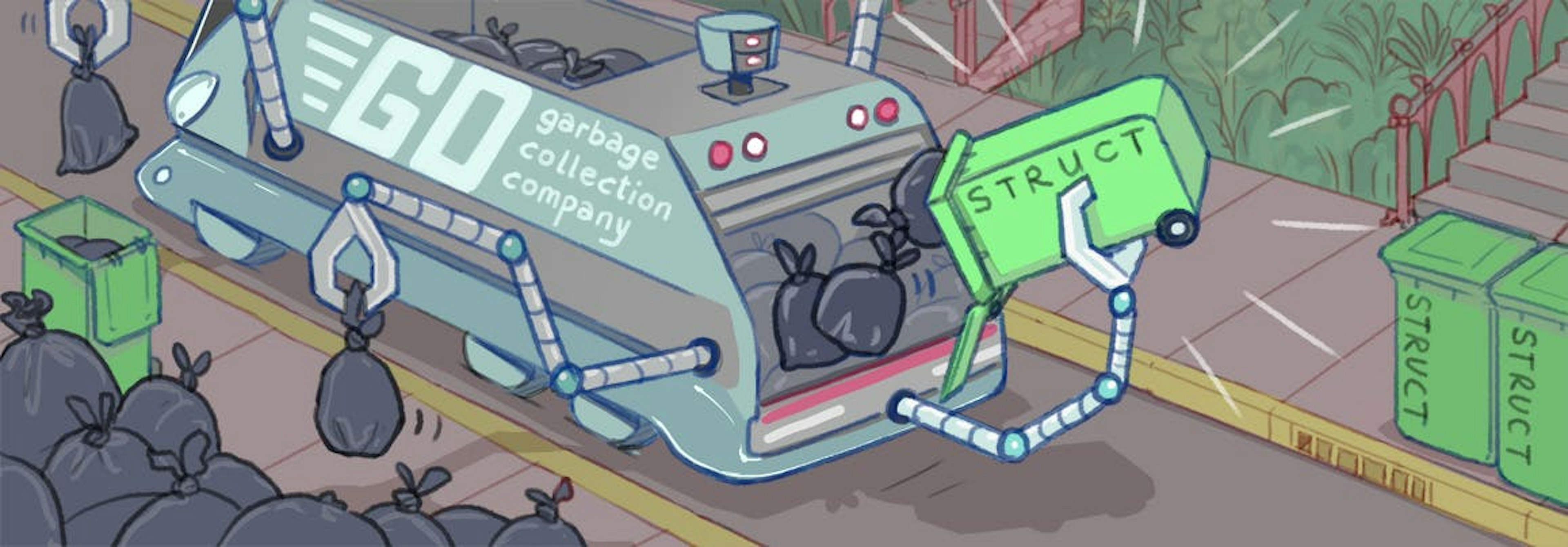
Jessica Edwards
Director of ContentJessica Edwards has been marketing for technical products and companies for a dog's age, and worked with non-profits for years before moving into the tech space. She has a deep love of storytelling, education, knowledge-sharing, and community building. After 13 years in NYC, she recently moved to Portland, OR. She is still getting used to the rain.
Engineering
How to optimize garbage collection in Go
After publishing \\[a post about why we chose Go for CockroachDB](https://www.cockroachlabs.com/blog/why-go-was-the-right-choice-for-cockroachdb/), we received questions about how we deal with some of Go’s known issues — especially those related to performance, garbage collection, and deadlocks.

Jessica Edwards
September 26, 2023
System
Why Go was the right choice for CockroachDB
This post was originally published on November 3, 2015, the year Cockroach Labs was founded. Eight years and 85,670 GitHub commits later, it’s still absolutely true: Go was the “write stuff” for CockroachDB. The first question many developers ask us is what our experience has been writing a distributed database in Go, a garbage-collected language. JVM garbage collection is notoriously expensive, so wouldn’t we be risking CockroachDB’s performance by building it in Go? The fact is, when you’re building a high-performance distributed system you’ve only got a handful of languages to choose from, with C++, Java, and Go topping the list. Java’s known performance issues made it unappealing. And, though many of us spent our careers developing in C++, the effort required to build our own libraries further complicated the already daunting task of writing a distributed database. Next on the list was Go.

Jessica Edwards
September 26, 2023
Community
How to survive a hackathon as a sponsor
Surviving a hackathon as a sponsor without becoming a complete zombie is no joke. To start, you’ll have plenty of practical, technical concerns that have to be sorted (How do you get people to try your product? Will the hackers be familiar with your application’s language?). But once you’ve got the technical issues taken care of, you’ll likely have nearly as many questions about how to keep your team as sane and functional as possible––despite running on limited sleep, consuming excessive caffeine, and likely being completely out of their comfort zones.

Jessica Edwards
July 31, 2023
Company
CockroachDB named a Customers' Choice in 2023 Gartner Peer Insights Voice of the Customer report
Cockroach Labs has been named a Customers’ Choice vendor in the 2023 Gartner® Peer Insights™ ‘Voice of the Customer’: Cloud Database Management Systems report. We are one of just two vendors –out of 60 total eligible vendors– in the Cloud Database Management Systems category to receive the distinction. According to the report, 98% of customers are willing to recommend Cockroach Labs, and we achieved an overall rating of 4.7 out of 5.0* based on 53 ratings as of March 2023 from customers with more than $50 million in revenue.

Jessica Edwards
July 25, 2023
Engineering
A brief history of high availability
I once went to a website that had “hours of operation,” and was only “open” when its brick and mortar counterpart had its lights on. I felt perplexed and a little frustrated; computers are capable of running all day every day, so why shouldn’t they? I’d been habituated to the internet’s incredible availability guarantees. However, before the internet, 24/7 high availability wasn’t “a thing.” Availability was desirable, but not something to which we felt fundamentally entitled. We used computers only when we needed them; they weren’t waiting idly by on the off-chance a request came by. As the internet grew, those previously uncommon requests at 3am local time became prime business hours partway across the globe, and making sure that a computer could facilitate the request was important.

Jessica Edwards
March 23, 2023
Product
How banks and fintech apps innovate (and compete) around cloud-native
Modern fintech apps like Betterment and Robinhood push the limits of what consumers expect from banking apps. One of their biggest competitive advantages is that they can support real-time decision-making and transaction processing, providing users with instant decisions, personalized experiences, and feature-rich applications. To keep up, banks and financial services organizations need to embrace digital transformations that enable them to innovate around transaction services. These services can include dynamic pricing, hyper-personalized content, real-time business process optimization, and fraud detection.

Jessica Edwards
April 28, 2021
Product
How to benchmark and tune Google Cloud
Engineers on cloud performance teams can spend their entire workday tuning and optimizing cloud configurations. We caught up with Steve Dietz, a Google software engineer focused on Google Cloud performance, to get advice on how to performance tune, provision, and benchmark Google Cloud Platform (GCP).

Jessica Edwards
April 1, 2021
Product
For compliance and latency in banking, move the data closer to the customer
Driven by a new breed of fintech applications, financial services organizations look to the cloud for infrastructure that is always-on, resilient, and able to support the real-time processing of transactions. In this post, we investigate how these organizations can deliver peak performance while ensuring compliance with local data protection and privacy laws. As Facebook and Google, and new-age fintech apps like Betterment and Robinhood, have driven consumers to expect feature-rich applications, every business needs to be concerned with performance. While this remains a top priority for financial services organizations, another component unique to the banking industry needs to be top of mind – keeping latency low. Another significant benefit of cloud-native applications for banks is that they can support very high volumes of transactions with low latency.

Jessica Edwards
March 26, 2021
Product
What cloud-first infrastructure looks like for banks
Innovative fintech organizations built from the ground up to be agile, data-driven, and cloud-native are driving traditional banks and financial services organizations to adopt cloud-native infrastructure. In order to remain competitive and relevant, banks are modernizing operations, replacing legacy systems like Oracle, IBM DB2, and others. Moreover, to keep pace with fintech organizations, banks are turning to the cloud.

Jessica Edwards
February 25, 2021








